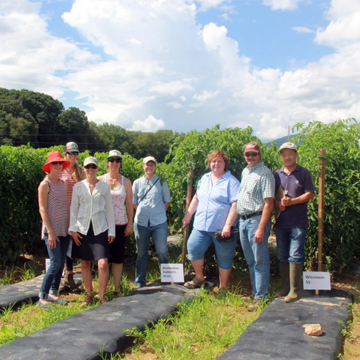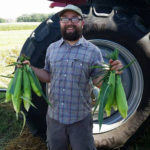The Southeast has made exciting progress in building a regional food system that emphasizes family farming and healthy food. A notable area of growth has been in organic agriculture.
Unfortunately, a critical element of organic production and integrity – organic seed – is not keeping pace with this growth. Organic seed gaps are especially noticeable to Southeast growers, where pest and disease pressures are high and climates variable. These challenges make the region unique, and there are few seed companies focused on serving this region. Furthermore, most seed companies are breeding crops in chemical production systems, meaning their varieties perform best when coupled with pesticides and fertilizers not used in organic production.

In 2012, Organic Seed Alliance conducted a Southeast seed needs assessment that represented input from more than 2,000 individuals. We then convened a Southern Seed Working Group made up of farmers, extension, university researchers, seed companies, and other stakeholders to develop strategies for addressing these needs. The working group has identified key organic research and education priorities for building a robust seed system that responds to the needs of organic agriculture in the region.
Most notably, OSA has been a research partner along with NC State in the Eastern Sustainable Organic Cucurbit Project led by Cornell University and the Tomato Organic Management and Improvement Project (TOMI) led by Purdue University. These projects are focused on evaluating melon, summer squash, and cucumber varieties, and developing late blight resistant tomatoes, to address the needs of Southeastern organic farmers.
Thanks to support from Southern Sustainable Agriculture Research & Education (SARE), we are organizing a Southeast Seed Summit to be held in conjunction with the Carolina Farm Stewardship Association’s Sustainable Agriculture Conference. Save the date to join us November 1–3, 2019, in Durham, North Carolina.
Here are a few project updates:

